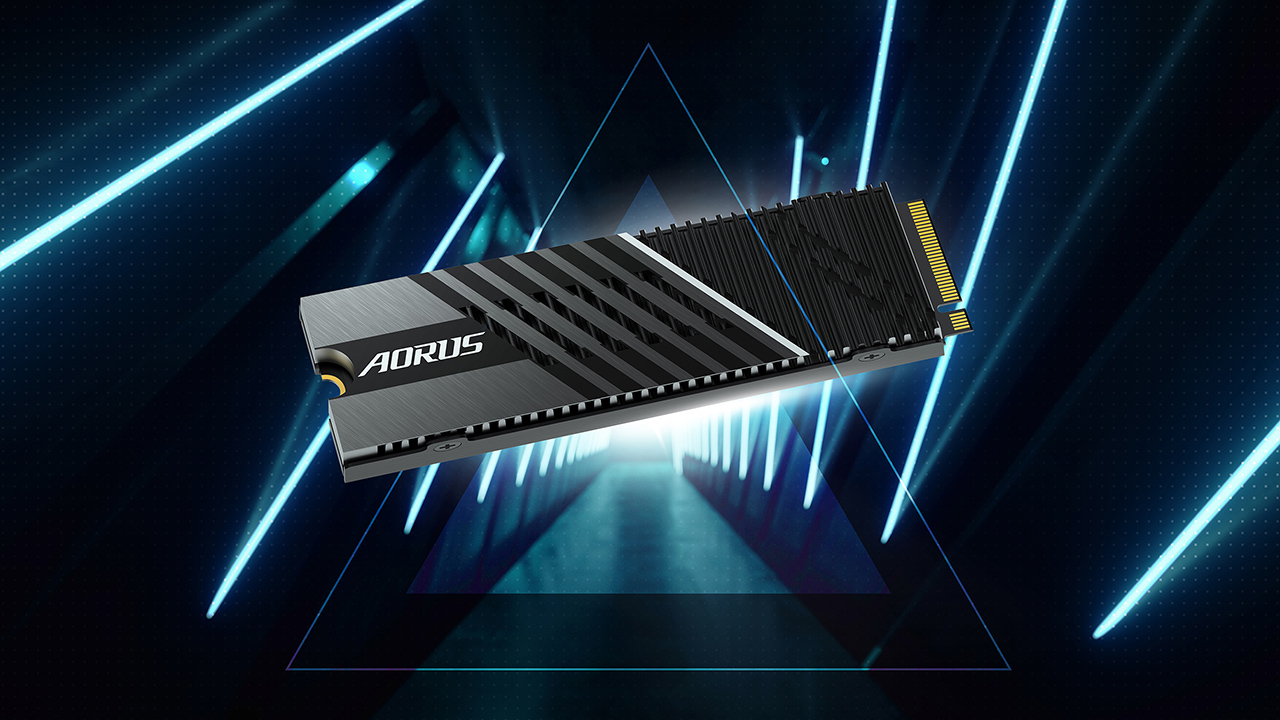Aorus Gen4 7000s, Gigabyte's new high performance PCI Express 4.0 SSDs
Source: HW Upgrade added 17th Jan 2021
Gigabyte announces second generation SSD M.2 PCI Express 4.0 coming to market soon. Two drives, capable of sequential read performance up to 7GB / s. An extreme version with a huge heatsink is also on the way.
by Manolo De Agostini published 17 January 2021 , at 09: 01 in the Storage channel
Gigabyte
Gigabyte was among the first in the summer 2019 to present an M.2 SSD compatible with PCI Express 4.0, then supported only by the X platform 570 by AMD and the Ryzen 3000. Characterized by sequential performance of 5000 MB / s reading and 4400 MB / s writing, the Aorus SSD has been one of the fastest proposals on the market so far.
But innovation does not stop and the producers of controllers are entering the full second generation PCI Express 4.0 , giving way to SSD manufacturers to realize even more proposals fast, with read speeds up to 7000 MB / s . Obviously Gigabyte could only be of the match: the new range Aorus Gen4 7000 s is based on the new controller Phison PS 5018-IS18 with eight channels, flanked by memory 3D NAND TLC a 96 layer . Available two capacities, 2 and 1 TB .
Unlike the first generation with a voluminous copper-colored heatsink (later versions with less bulky heatsinks arrived), the new range has a black passive heatsink.
Tested real, the new SSD AORUS Gen4 7000 s have reached a speed sequential up to 7 GB / s in reading and up to 6, 85 GB / s in writing , while random performance hit peaks of respectively . 000 is 650. 000 IOPS (2TB model).
Gigabyte provides endurance up to 700 TBW 5 years long for the 1 TB model, with the value doubling for the 2 TB version (0, 38 DWPD, drive writes per day). The maximum consumption amounts respectively to 6.6 and 8.4 watts.
Gigabyte also anticipated the arrival of a particular version of the SSD, equipped with what looks like a double heatsink connected by heatpipe . This solution is aimed at those who put the SSD under stress for long periods of time, or in those configurations where there is limited air recirculation (such as totally liquid-cooled systems). The Taiwanese company hasn’t announced the prices of the new SSD range, but they certainly won’t be cheap, at least in principle.
